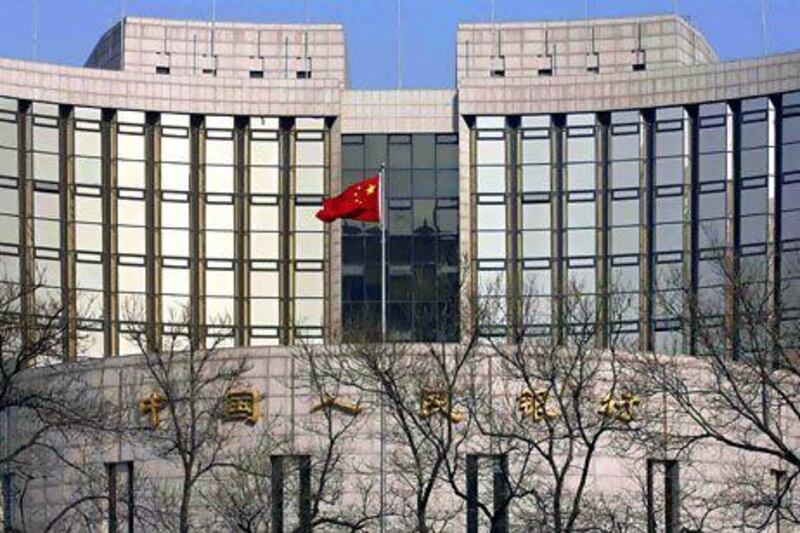China's readiness to bend retirement rules to keep the arch-reformer Zhou Xiaochuan at the helm of the central bank sends a clear signal that the new Communist Party chiefs want to speed economic reform in the country's most critical development phase in three decades.
Central bank insiders say the People's Bank of China (PBOC) is the country's most potent force for reform in the face of powerful vested interests, echoing sources with leadership ties who last week said Mr Zhou would keep his job despite reaching the mandatory retirement age of 65.
Keeping Mr Zhou ensures that the PBOC will remain a trusted instrument through which China's leaders can enact financial reforms designed to boost free markets and private enterprise, rebalance the economy, reinvigorate growth and ultimately heal a socially divisive rift between the country's rich and poor.
"Governor Zhou has been rather bold in spearheading market reforms and sometimes does not care about the possible repercussions," says a PBOC official who requested anonymity due to the sensitivity of the matter. "They really need someone who can sustain the reform momentum."
The reform agenda espoused by party leaders Xi Jinping and Li Keqiang is not always popular with the local government officials, state-backed business and cosseted national lenders who would find their power bases fundamentally weakened. But the PBOC has a track record of getting the job done in the face of entrenched opposition. The central bank has modernised domestic bond and money markets, laid the groundwork for short-term market instruments to manage bank liquidity and credit, while simultaneously creating mechanisms that allow it to resist pressure from growth-obsessed local officials to constantly tweak interest rates.
Indeed, the past 12 months have produced the most important package of interest rate, currency and capital-market reforms since the landmark July 2005 break of the yuan's peg to the dollar - and all in a year when political change at the top of the party was supposed to stall change elsewhere.
That is despite a clear clash with China's banking regulatory commission on the liberalisation of interest rates. "Big banks were definitely against interest-rate reform, but they could not openly oppose it," says Zhao Qingming, a senior economist at China Construction Bank, one of the so-called "Big Four" state banks.
When the PBOC proposed doubling the yuan's trading band to 1 per cent last year, it worked hard to soothe fears of the commerce ministry that it would not harm the export sector, according to sources familiar with the situation.
Arguably it was Mr Zhou's 2005 success in engineering a break of the yuan's dollar peg in the face of staunch opposition from the commerce ministry that most clearly states his credentials.
Yu Yongding, a respected economist and leading advocate of major currency reform, recalls the wrangling required to make the decision on a PBOC monetary policy committee stacked with senior officials from a variety of government departments.
Mr Yu, an economist at the top government think tank, the Chinese Academy of Social Sciences, sat on the policy panel from 2004 to 2006, as the PBOC went head-to-head with critics of revaluation, who complained that exporters could not withstand any rise in the value of the yuan.
"Their views had to reflect the stance of their respective departments," Mr Yu says.
He adds that Mr Zhou's pragmatic approach defused the row, agreeing to a small initial rise of 2.1 per cent in the yuan's value against the dollar, while forging a top-level consensus on the incremental annual pace of currency strengthening that has seen it gain around 33 per cent in nominal terms since.
Despite the stronger yuan, China has become the world's biggest exporting economy while its companies have been forced to make productivity and quality improvements to stay competitive.
Mr Xi and Mr Li, due to take over in March as president and premier, respectively, need to engineer an even more widespread move up the value chain to deliver enough growth to support China's next stage of economic development.
Using the PBOC as a catalyst for reforms is a smart move, provided the anticipated domino-effect works as expected and relatively straightforward liberalisation efforts trigger more fundamental evolution in China's economic structure. The central bank must make borrowing costs more market-driven to improve resource allocation and wean the economy off reliance on state-led investment, analysts say.
But the financial system is dominated by state-owned banks that channel the bulk of loans to state projects and state-owned enterprises, starving private enterprise.
Optimists say that even if it does not deliver entirely as anticipated, the central bank is likely to be more effective in the short term than trying more politically charged reforms, such as China's strict system of household registration, or Hukou.
A further advantage of using the PBOC as the instrument for change is that the most important decisions it disseminates are essentially edicts approved by China's cabinet or by the ruling politburo.
Keeping the reform-orientated Mr Zhou in the top central bank job ensures the leadership is dealing with a like-mind.
"If we get someone who is tepid and does everything on an even keel, the reform process could be slowed," says Xu Hongcai, a former PBOC staffer and now a senior economist at China Centre for International Economic Exchanges, a Beijing think tank.
"We must ensure policy continuity while injecting a new air into reforms."
* Reuters





